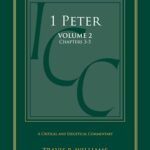Whatever Happened to Literal Hermeneutics? (Part 1)
For decades it was assumed, by both sides of the debate between dispensational and Reformed theology, that the primary distinction between the two models (there were really no other viable evangelical options in the early days) was hermeneutical—dispensationalists held consistently to a “literal” reading of Scripture (and most importantly the OT prophetic portions of Scripture), while the Reformed were comfortable with a nonliteral (e.g., spiritual or typological) interpretation of those same texts. Anthony Hoekema, for instance, reflecting this understanding from a Reformed perspective, wrote in his chapter of The Meaning of the Millennium, “Premillennialists, particularly those of dispensationalist persuasion, are committed to what is commonly called the ‘literal’ interpretation of Old Testament prophecy.… Amillennialists, on the other hand, believe that though many Old Testament prophecies are indeed to be interpreted literally, many others are to be interpreted in a nonliteral way” (172).
The reasons that non-dispensationalists felt comfortable reading the Scriptures in this way are manifold, but much of the argument rested on the premise that the Bible was not a “normal” book. Unlike ordinary books, the Bible is inspired, the Bible has a unique sort of dual authorship (God and the human author), and the meaning of the Bible is in some sense mediated through the Holy Spirit, who alone knows the mind of God perfectly. For these and other reasons, the Bible cannot be boxed in by the so-called “received laws of language” that seem to govern other literature.
As time has passed (and as mediating positions have multiplied), the argument has changed. Rather than seeing two fundamental hermeneutical approaches, it is common for all of the multiplied parties debating this issue to concede that the “grammatical/historical” method is the common property of all, and then for each to demonstrate that its distinctive application of this shared method is more exegetically defensible. The new leading distinction between theological systems is thus no longer about hermeneutics, but is rather about exegesis and biblical theology. Consequently, the only piece of Ryrie’s trifold sine qua non of dispensationalism that survives, for many, is its distinction between Israel and the Church in the unfolding of biblical theology.
It is my contention in this blog series that this concession has weakened dispensationalism. Specifically, it has barred from debate the transcendental discussion of the “received laws of language” as presuppositional to the exegetical task. This topic is too complex to unfold in a few paragraphs, so if the reader is willing to receive this argument over the course of weeks, I will attempt to complete it in a short series of posts. Many thanks in advance for your patience.



Looking forward to this series…thanks!
Amen. Interesting timing; a brother in the church I pastor has asked for some teaching on dispensationalism. Of course I toss in my mind where to start exactly; and I settled on the issue of hermeneutics. I think that’s the heart of it.
Is the text a revelation, or is it not? Does the text have meaning, or does it not? Did the recipients of the OT word have truth from God they could count on, or did He talk “over their heads” to us instead? If so TO ANY DEGREE, then how can we be confident that He is not doing the exact same thing to us?
If the wording of a text could have a clear and univocal meaning to the inspired author and to the great bulk of his saved audience, AND YET that meaning not be God’s meaning… then none of us dare teach the Bible or say we know what it means.
This may not sound very collegial, and I don’t mean to be mean, but to me it really has been a life and death issue (http://bit.ly/PXTfeP).
Looking forward to.
Should be an interesting series although I think it is an oversimplification to conflate grammatical/historical with “literal” in the sense you are using it.
There have always been those in the Reformed tradition and other non-dispensationalists who argued for a plain hermeneutic while also maintaining that certain typological interpretations were valid because they were both intended and anticipated by the human authors. The question was one of recognizing when figures of speech, symbols, etc. were intended.